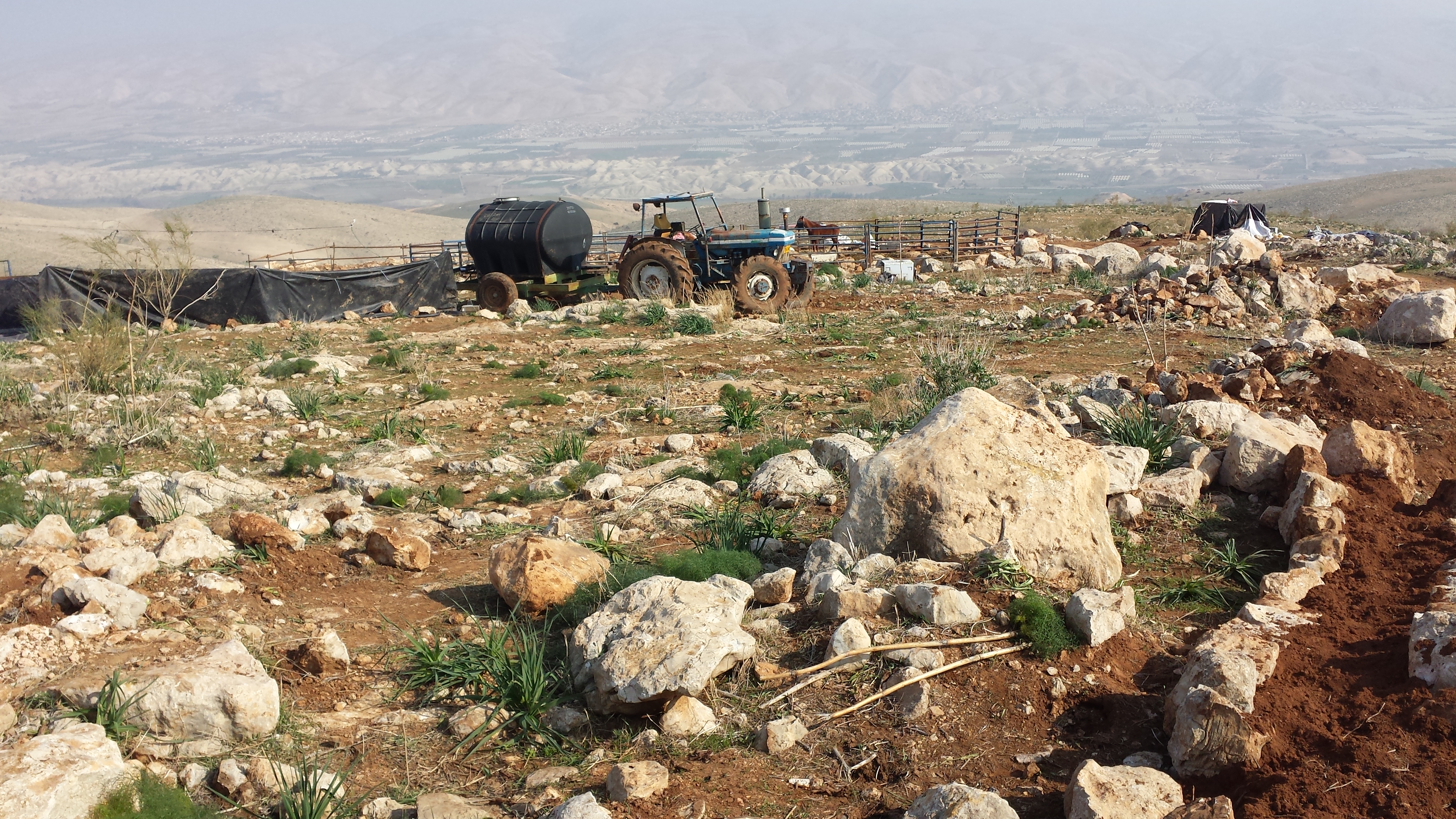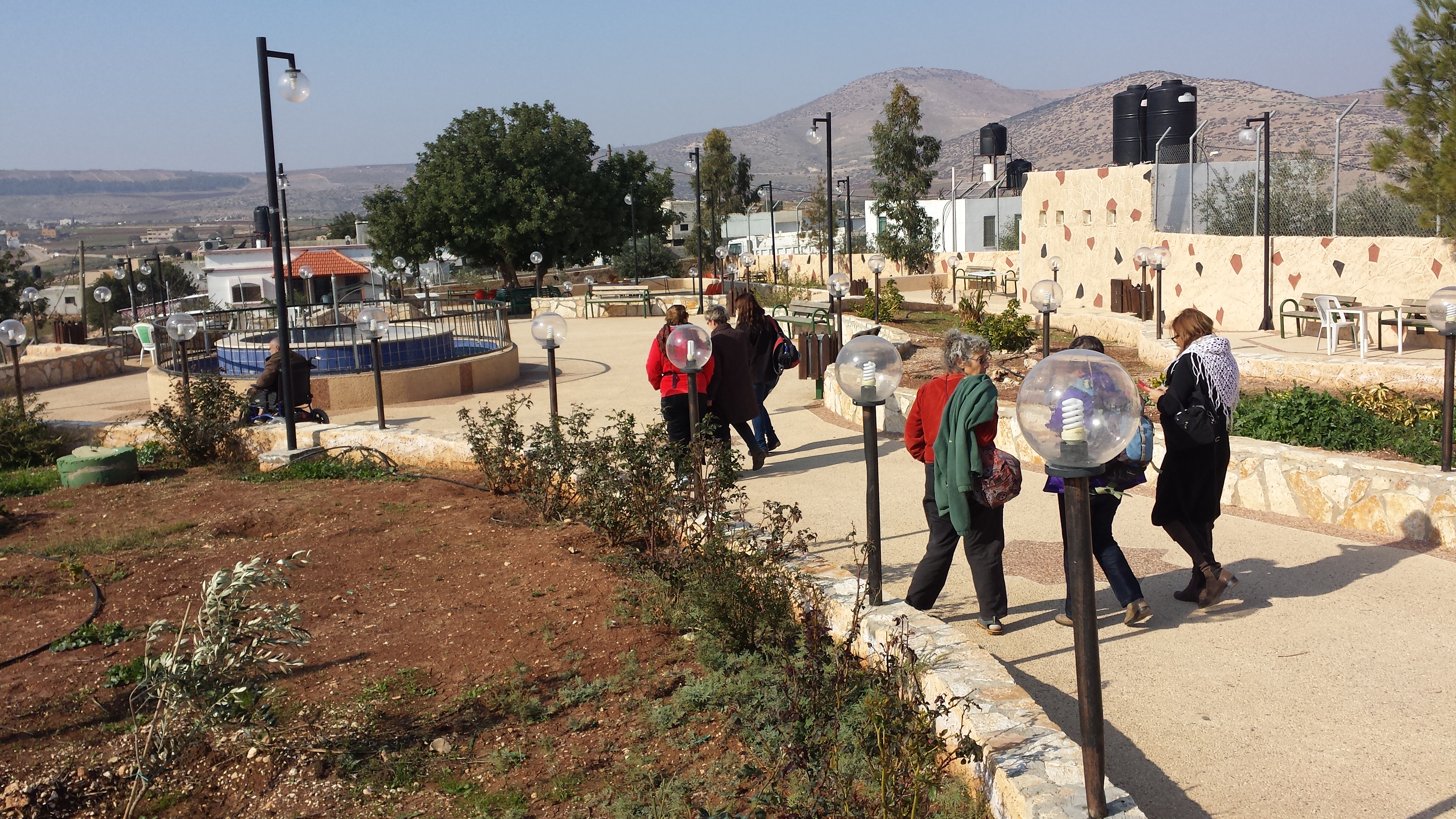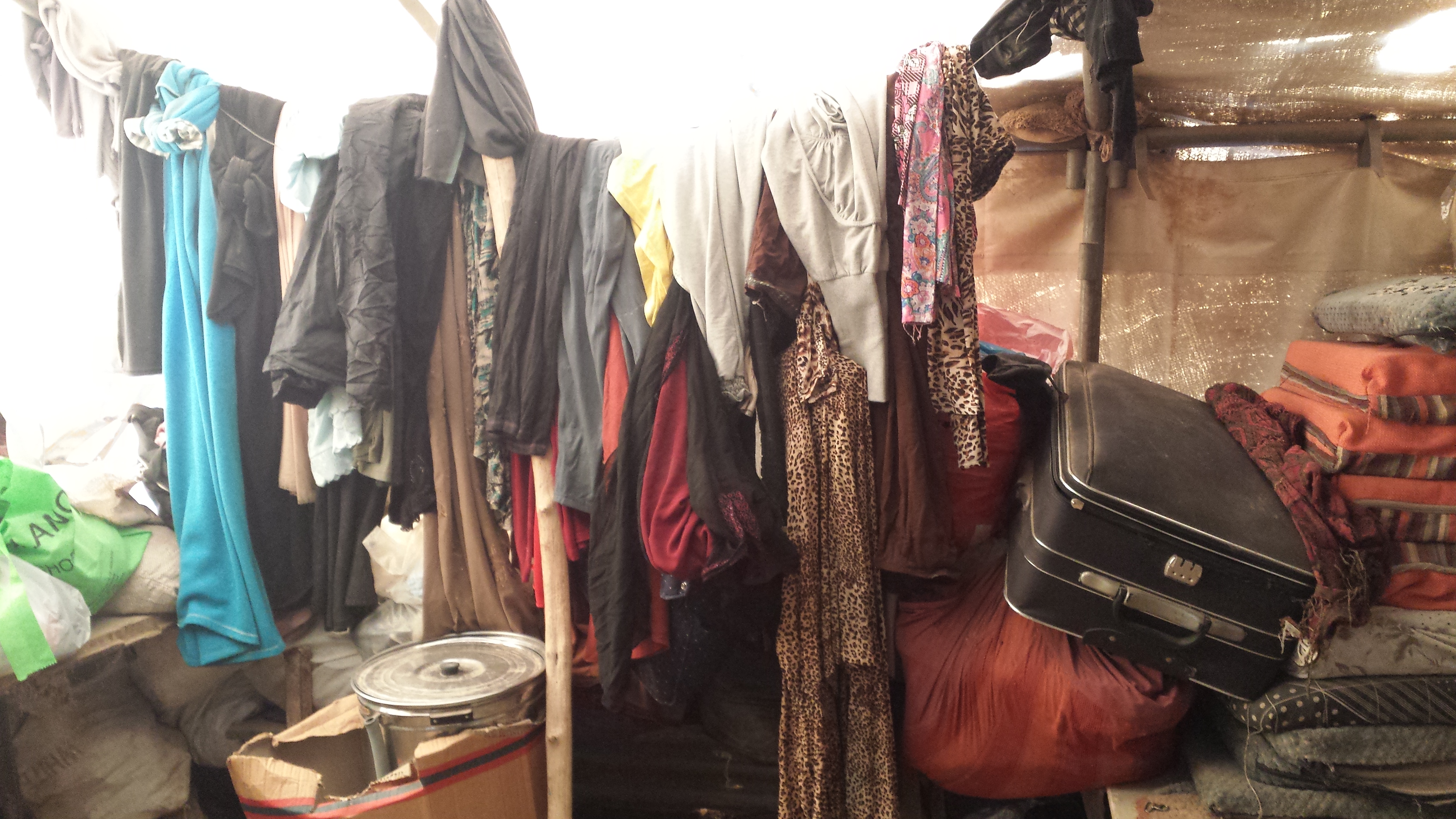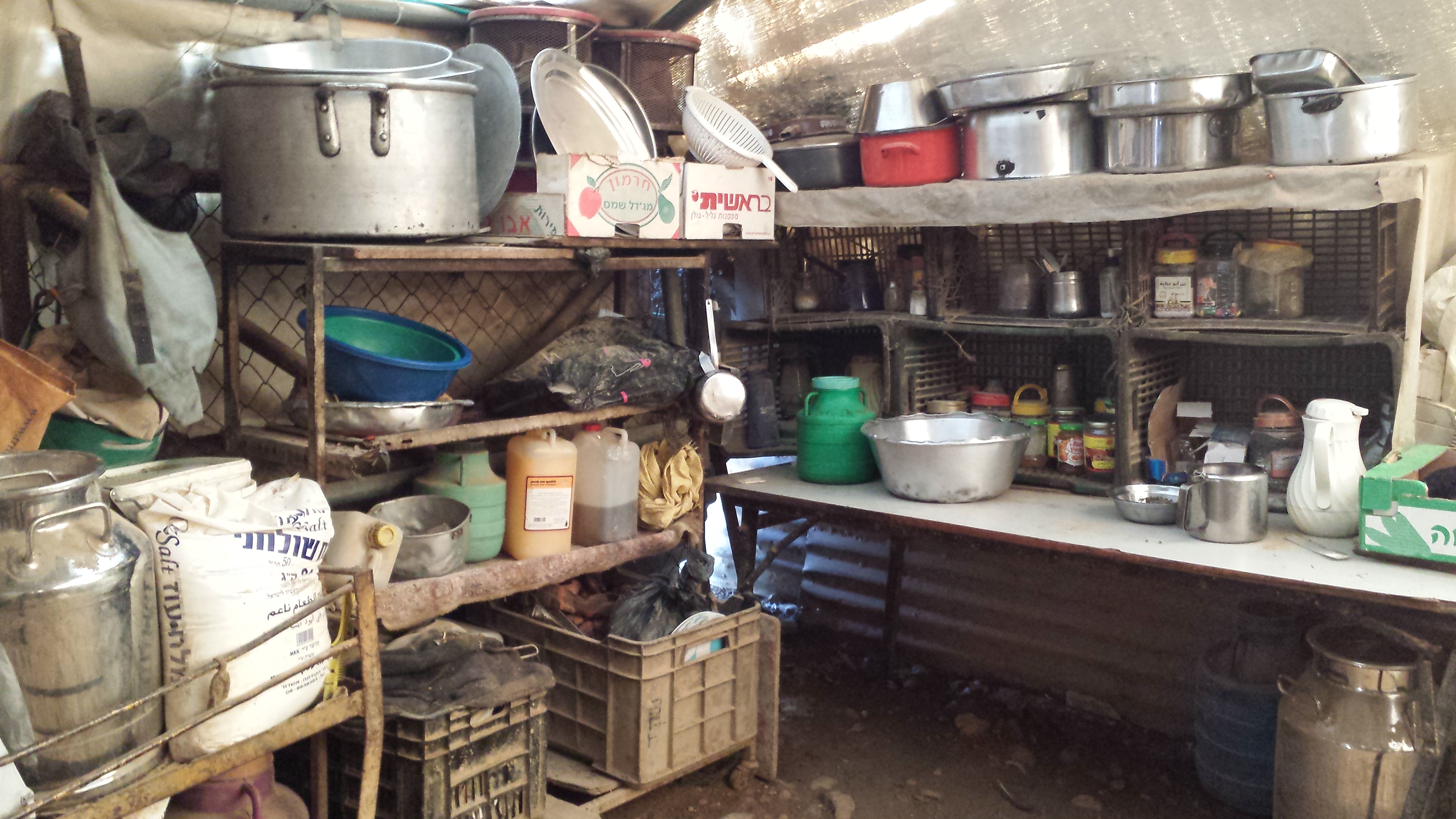Tour of the Palestinian Jordan Valley
One minibus, 15 women and one man, the program is full and we manage a part of it.
I had not been in the region for a long time, and just as with the proverbial flash visitor, “flaws” kept leaping into view. These are the same injustices and cruelties of denying water, demolishing tents and shelters, preventing access to farmlands, to school, to pasture, army incursions in the deep of night, intimidations… The cruel treatment by the settlement security officials and on and on…
- Kahlat Makhoul – B. welcomes us warmly and excitedly takes us to view the horizon: a procession that seems taken out of a Fellini film, of 40 cows grazing under the watchful eye of settlers. These have erected a new outpost in the past three days in the En Zuk nature reserve. They threaten B.’s own grazing possibility on the hill, they have run over a dog with their mini-tractor and killed it, and they threaten with violence. B. is concerned with everything that still awaits him from them. According to him, the army blocked Guy and his Taayush friends from approaching, and enabled the erection of this outpost. In En Al Hilwa, also threatened by the new and constant presence of Jews, people told us that the soldiers fraternized with the settlers, having drinks with them.
- En Zuk is an officially declared nature reserve. We climbed up the slopes of the reserve in order to view the outpost: a pickup truck with tow, a vehicle and a tractor are parked in the site, a corrall (for cows? Horses?) made of metal pipes containing a young horse, alongside it – a pup tent, another tent and a boy with side-curls. Opposite us another three settlers approach and we clear the area before our photos can be confiscated…

an illegal outpost is erected, unhampered, in the En Zuk nature reserve in the
Palestinian Jordan Valley
- Aqaba village – Sami, head of the village council (crippled at 16 by Israeli soldiers’ fire) receives us in his wheelchair. He is proud to show us the 300-inhabitants’ village, a rose garden in its center surrounded by a playground and kindergartens, a library with 50,000 books and a cooperative plant for the welfare of the village, producing cheeses, herbal infusions and honey. Cleanliness and proper maintenance are paramount. After Sami’s positive explanations, he also tells us of the home demolitions inflicted on young couples who construct their homes in the village, situated in Area C. In deep pain he accounts how this week, for the first time, soldiers invaded all the homes in the middle of the night and scared the children. This happened on Sunday, January 1, 2017, and again two days later on Tuesday. He sounds shocked and wants us to sound the alarm and make it known wherever possible in order to prevent such occurrences in the future. The soldiers claimed they were searching thieving children…

Charming white houses, rose garden and playground, 300 inhabitants.
En Al Hilwa – we have a talk with M. who expounds on the shepherd children ages 5-12, cruel harassments, confiscations of animals, body injuries inflicted by the security officials of nearby settlements, ammunition left by the army and lying around in grazing areas that serve the army as training grounds, causing injuries and casualties among the shepherds. M. Told us of yet another outpost erected yesterday close by.


- Homsa – in M.’s encampment, above Hamra Checkpoint, we had a delicious lunch in the evening hours… We heard once more about the water shortage problems and home demolitions again and again. Yesterday, Friday, the checkpoint was closed off for hours in the morning. No one knew the reason why. Why should Palestinians be informed? What does time mean for them?... On our way in the morning military policemen were there, requiring drivers crossing into the Jordan Valley to present their papers. The MPs left after a while.
The accounts of injustice we heard and which I shall not repeat here, and the sights we saw shocked us with their severity and with the Palestinians’ inability to access fair due process of the law, even if they lodge a complaint. The warmth and friendliness of our welcome were a direct contrast to what we felt: shame and shock.
We must make special mention of Rina who guided us with her personal familiarity with the region and its inhabitants, and the tour – based on her contacts with the people and our encounter with some of them – managed to move, charm and touch all of us.
